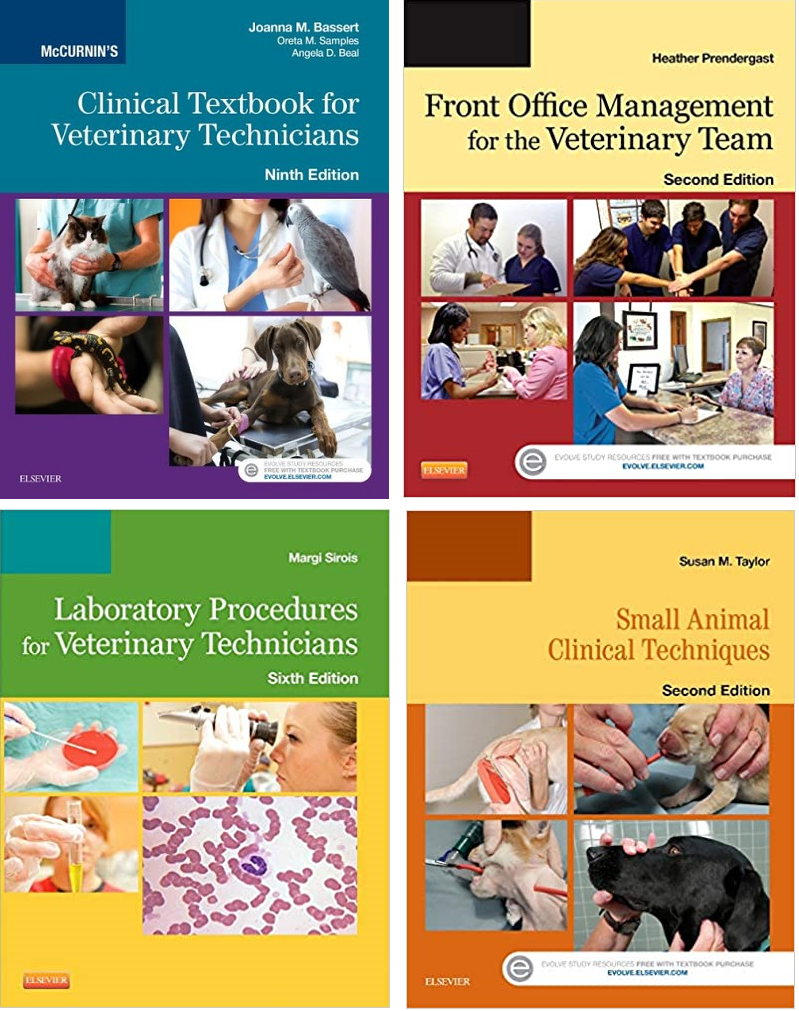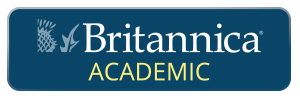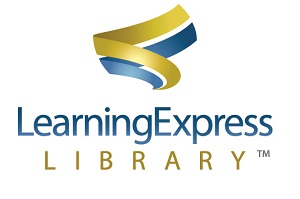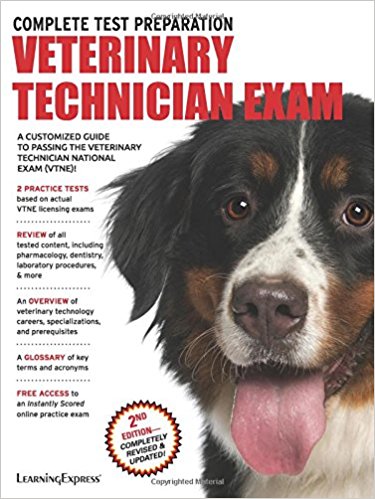If your class recently attended a Library session, please let us know how we did with this short survey.
Welcome to the DCTC Library's Veterinary Technician subject guide. On this page you will find helpful information about the research and writing process, including links to help you evaluate and cite your sources.
The 2nd page has information about the resources in our library and how to find them using our catalog.
The 3rd page is a gateway to the Library's best online resources and web sites for the Veterinary Technician program, including some tutorials for these resources.
Let's get started!

Abraham Lincoln famously said you shouldn't believe everything you read online. And 82% of all statistics are made up.
There's a lot of misinformation out there. Digital literacy expert Mike Caulfield developed the SIFT method to help students evaluate information and make better decisions about what sources to trust:
Stop
Investigate the source
Find better coverage
Trace claims, quotes, and media to the original context
Here are more guides to help you evaluate sources of information:
- Criteria for Evaluating Information (Otis College of Art and Design)
- Evaluating Information (Johns Hopkins University)
- Evaluating Resources (UC Berkeley)
- Evaluating Sources of Information (Purdue University)
- Online Verification Skills with Mike Caulfield (YouTube)
There are different styles for citing the sources you use in your assignments, but science and medical writing usually requires APA (American Psychological Association) style. The Purdue Online Writing Lab has an excellent guide to using APA style, with lots of examples:
You can also go straight to the source:
Our catalog and databases provide citations for the books, videos, and articles you find in them. Just look for a link that says Cite or Citation, then select APA style. It's easy to copy and paste citations into your bibliography!
"Plagiarism includes, but is not limited to, the use, by paraphrase or direct quotation, of the published or unpublished work of another person without full and clear acknowledgment. It also includes the unacknowledged use of materials prepared by another person or agency engaged in the selling of term papers or other academic materials."
This definition of plagiarism comes from page 1 of DCTC's Student Code of Conduct. See how easy that was?
Citing your sources is an essential step in the research process. This allows others to verify your information and gives credit to previous researchers and writers for their hard work.
The Center for Student Success offers tutoring to all DCTC students, including help with writing your paper and citing your sources. You can schedule an appointment by calling 651-423-8420 or visiting room 2-101.
Use our catalog, OneSearch, to find the books and videos on our shelves, plus ebooks and streaming videos.
The best way to begin your search is to enter one or two keywords on your topic. To narrow your results, use the Modify My Results options on the left side of the screen. You can also click on a relevant title and click on one of its subject headings to focus your search on that particular topic.
Please ask a librarian if you need help locating anything you find in our catalog.
If we don't have the book, video, or article you're looking for, you can request it via interlibrary loan (ILL) and it will come to you. It's easy! E-mail library@dctc.edu to let us know what you're looking for and we'll do the rest.
Behind the circulation desk we have our Course Resources collection. These are books and videos that instructors have asked us to reserve for certain classes. Books on reserve must be used in the Library unless you have permission from your instructor to check them out overnight. Click on this image to see which books we currently have on reserve for Veterinary Technician courses:
We have lots of books about veterinary medicine in our collection. If you like to browse, most of these are shelved in the SF call number range. Ask a librarian if you need help finding anything.
Here are just a few of these books:
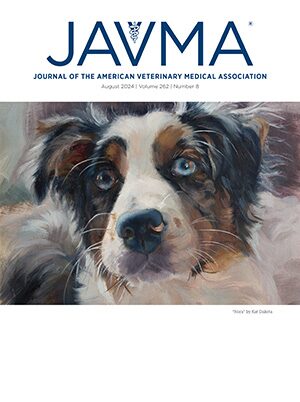 We have print issues of the Journal of the American Veterinary Medical Association (JAVMA) from the past five years, plus online coverage from 2000 to the present.
We have print issues of the Journal of the American Veterinary Medical Association (JAVMA) from the past five years, plus online coverage from 2000 to the present.
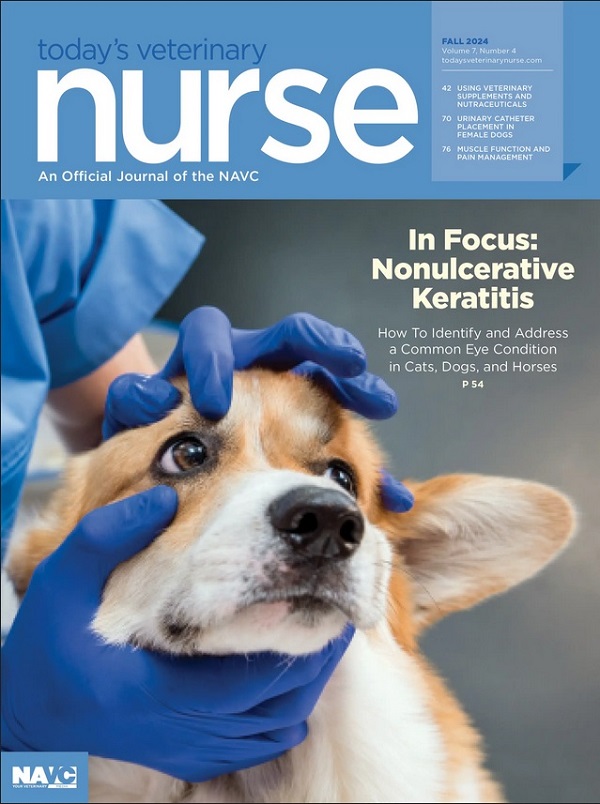 We have print issues of Today’s Veterinary Nurse starting in 2024, plus online coverage from 2016 to the present.
We have print issues of Today’s Veterinary Nurse starting in 2024, plus online coverage from 2016 to the present.
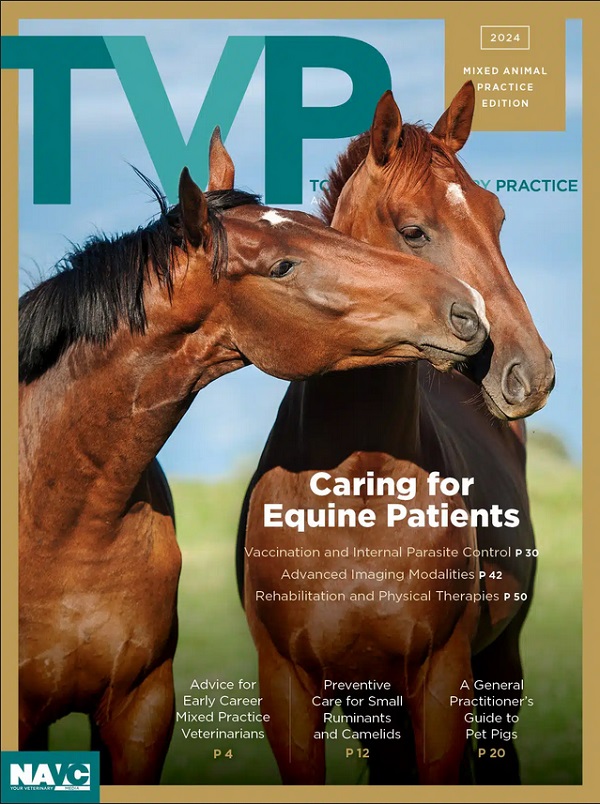 We have print issues of Today’s Veterinary Practice starting in 2024, plus online coverage from 2011 to the present.
We have print issues of Today’s Veterinary Practice starting in 2024, plus online coverage from 2011 to the present.
Reference books and online resources like AccessScience, Britannica Academic, Gale eBooks, and Salem Online are great for improving your background knowledge on almost any topic. These resources also provide images and videos, which you can use to liven up your papers and presentations.
LearningExpress Library is an outstanding resource for academic and career development with hundreds of online tutorials, practice tests, and ebooks.
The Career Preparation center includes an ebook and two practice tests to help you prepare for the Veterinary Technician National Examination (VTNE). You'll also find ebooks to help you with your job search, interviewing, networking, and workplace skills.
 We have online access to the Journal of the American Veterinary Medical Association (JAVMA) from 2000 to the present.
We have online access to the Journal of the American Veterinary Medical Association (JAVMA) from 2000 to the present.
There are millions of full-text articles in our EBSCO, Gale, and ProQuest databases. The best way to begin your search is to enter one or two keywords on your topic. Each database is different, but there will be ways to limit and focus your results so that you find the most relevant and useful articles available.
 Our EBSCO databases are an excellent place to start your search for magazine and journal articles.
Our EBSCO databases are an excellent place to start your search for magazine and journal articles.
 Our Gale databases are another great place to find magazine and journal articles.
Our Gale databases are another great place to find magazine and journal articles.
 Search more than 30 million citations from biomedical and life science sources with PubMed. Some citations include links to full-text content.
Search more than 30 million citations from biomedical and life science sources with PubMed. Some citations include links to full-text content.
 Search and explore scholarly literature with Google Scholar. Some citations include links to full-text content.
Search and explore scholarly literature with Google Scholar. Some citations include links to full-text content.
You can browse veterinary journals by title with BrowZine. You can easily place interlibrary loan (ILL) requests for any articles that aren't available in full text.
Please visit the Library or e-mail library@dctc.edu if you have any questions about our online resources or if you'd like help finding articles on your topic.

Merck Veterinary Manual covers veterinary topics such as behavior, emergency medicine, and nutrition; information organized by companion animal; case studies; clinical calculators; video and images; and much more.
- American Animal Hospital Association
- American Association of Feline Practitioners
- American Veterinary Medical Association (AVMA)
- Clinician's Brief
- dvm360
- Journal of the American Association for Laboratory Animal Science (JAALAS)
- Journal of Exotic Pet Medicine
- Minnesota Veterinary Medical Association (MVMA)
- MVMA Classified Ads
- Today's Veterinary Nurse
- VeterinaryPartner.com
Here are just a few of the ebooks about veterinary medicine you'll find in our EBSCO eBook Collection:
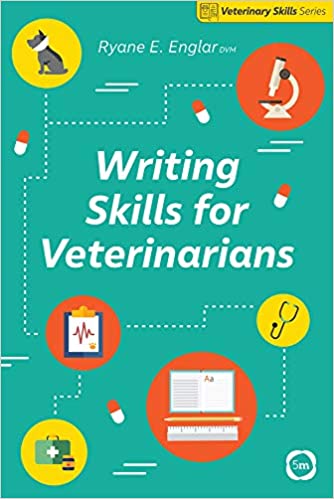 Writing Skills for Veterinarians
Writing Skills for Veterinarians
Ryane Englar, 2019
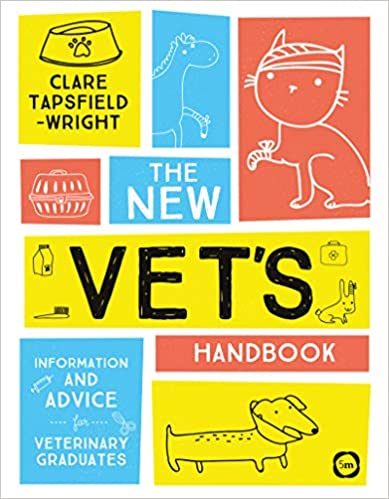 The New Vet's Handbook: Information and Advice for Veterinary Graduates
The New Vet's Handbook: Information and Advice for Veterinary Graduates
Clare Tapsfield-Wright, 2018
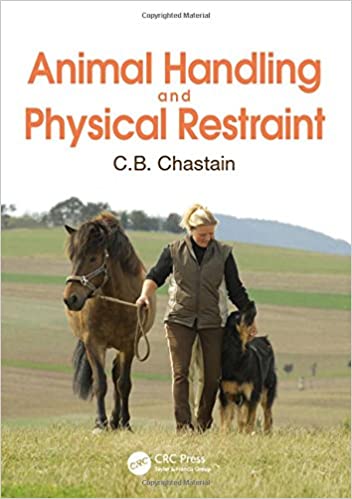 Animal Handling and Physical Restraint
Animal Handling and Physical Restraint
C. B. Chastain, 2018
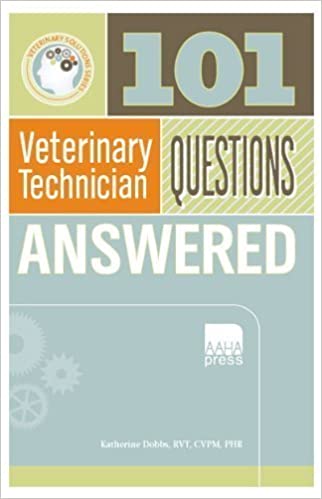 101 Veterinary Technician Questions Answered
101 Veterinary Technician Questions Answered
Katherine Dobbs, 2009
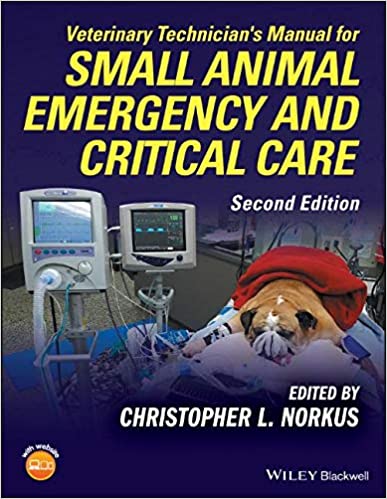 Veterinary Technician's Manual for Small Animal Emergency and Critical Care
Veterinary Technician's Manual for Small Animal Emergency and Critical Care
Christopher L. Norkus, 2018
Here are some ebooks about client communication from our EBSCO eBook Collection:
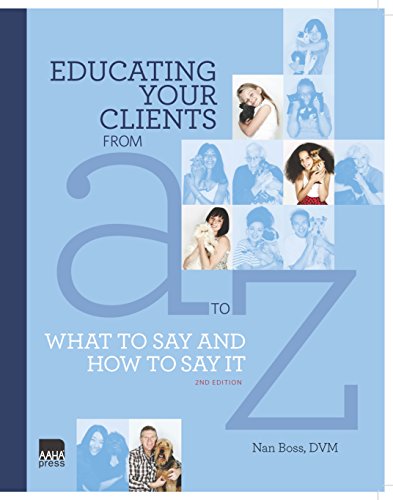 Educating Your Clients From A to Z : What to Say and How to Say It
Educating Your Clients From A to Z : What to Say and How to Say It
Nan Boss, 2011
 Connecting with Clients: Practical Communication for 10 Common Situations
Connecting with Clients: Practical Communication for 10 Common Situations
Dana Durrance, 2009
Here are more ebooks about client communication from our EBSCO eBook Collection:
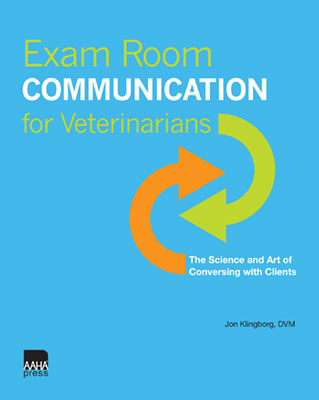 Exam Room Communication for Veterinarians: The Science and Art of Conversing with Clients
Exam Room Communication for Veterinarians: The Science and Art of Conversing with Clients
Jon Klingborg, 2011
 Connecting with Grieving Clients: Supportive Communication for 14 Common Situations
Connecting with Grieving Clients: Supportive Communication for 14 Common Situations
Laurel Lagoni, 2011
Here are some more ebooks about veterinary communication from our EBSCO eBook Collection:
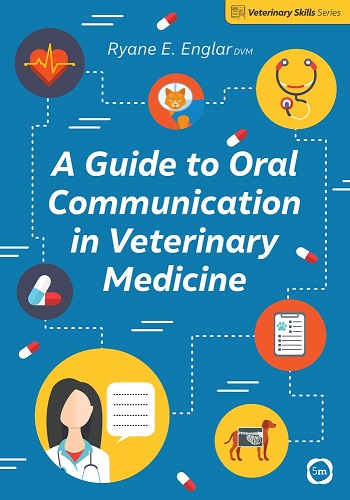 A Guide to Oral Communication in Veterinary Medicine
A Guide to Oral Communication in Veterinary Medicine
Ryane Englar, 2020
 Writing Skills for Veterinarians
Writing Skills for Veterinarians
Ryane Englar, 2019



